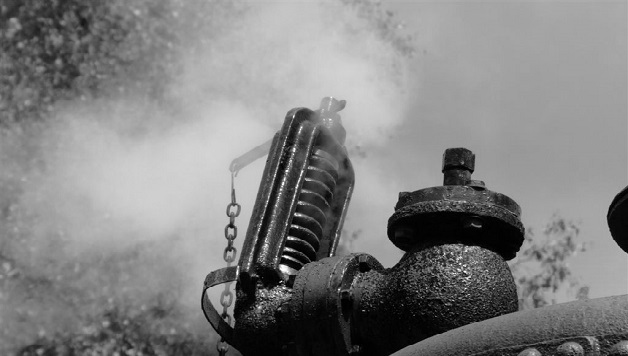On 28 December 2015, Royal Commissioner Dyson Heydon AC QC handed down the final report of the Royal Commission into Trade Union Governance and Corruption (also known as the Trade Union Royal Commission, or TURC). The TURC made a number of findings of misconduct and referred a number of trade union officials, as well as a Member of the Victorian Parliament, to authorities including the police and various State and Commonwealth Directors of Public Prosecutions.
The Report consists of six volumes (one of which is not publicly available), and deals with a wide range of matters relating to the conduct of trade unions in Australia and their officials. Importantly, it contains recommendations and analysis that will be of interest and relevance outside just industrial relations circles. In fact, the Report contains an entire chapter relating to competition law issues (which, as well recognised, largely overlap with industrial relations), and makes 8 recommendations for law and policy reform in that area. In this post, we consider the ‘competition’ aspects of the Report and look at its recommendations.
Competition law and policy recommendations
- Increased penalties for secondary boycott conduct: The Report contains a recommendation (Recommendation 52) that the Competition and Consumer Act 2010 (Cth) (CCA) be amended so that the penalties for breaches of the secondary boycott provisions (ss 45D, 45DB, 45E and 45EA) are the same as those that apply to other provisions of Part IV of the CCA. At present, penalties for breaching those sections cannot exceed $750,000 (for a body corporate) and no penalty can be imposed for breaches by non-bodies-corporate. Implementation of this recommendation would see the maximum penalty for bodies corporate increase more than ten-fold to $10 million (or more), and the introduction of penalties for non-bodies-corporate (such as, for example, a union official in their personal capacity) of up to $500,000.
- Communication not necessary to prove an arrangement or understanding: The Report also contains a recommendation (Recommendation 53) that the CCA be amended to clarify that, to prove the existence of an arrangement or understanding, it is not necessary to establish communication between parties to the arrangement or understanding (merely that they hold the same understanding). As the Commissioner noted, this is probably already the law – but the proposed amendment is intended to increase clarity. Notably, the Harper Review (discussed in more detail below) recommended that the CCA be amended to prohibit engaging in a concerted practice with one or more other persons, with the purpose, effect or likely effect of substantially lessening competition, which could also apply in situations where the relevant parties did not directly communicate with each other.
- Stand-alone effects test for some secondary boycott provisions: The Report recommends (Recommendation 54) amendments such that sections 45D(1)(b), 45DA(1)(b) and 45DB(1) capture conduct with the relevant purpose, effect or likely effect rather than requiring that conduct have both the relevant purpose and effect or likely effect. This means that contraventions of those sections could be shown even where a person does not engage in conduct for the purpose of, for example, causing substantial loss or damage to the relevant person’s business.
- Prohibition on competitors of ‘fourth persons’ referred to in sections 45D and 45DA knowingly supplying/acquiring services to/from ‘third persons’ that are subject to a secondary boycott (subject to notifying the ACCC): This proposed amendment to the prohibition (Recommendation 55) would apply where a competitor to the target of the boycott knew of the secondary boycott conduct. However, the TURC Report also recommends that such conduct be capable of notification to the ACCC (akin to a third line forcing notification). While the recommendation in the TURC Report refers only to the supply or acquisition of ‘services’, the TURC Report may have been intended to include a reference to ‘goods’. The intention behind this recommendation appears to be to prevent competitors of the targets of secondary boycott conduct from benefitting from the boycott by supplying/acquiring goods and services in substitution for the target.
- Suggestion that the ACCC consider whether to extend its immunity policy to secondary boycott conduct: At present, the ACCC has an immunity and co-operation policy that only applies to cartel conduct. Part of the rationale for the policy is the fact that cartel conduct is often covert and difficult to uncover – accordingly, special measures need to be taken to encourage cartelists to come forward and reveal the existence of cartels to regulators. Presumably, the TURC perceives that there are similar issues in relation to secondary boycotts, but it does not discuss this recommendation (Recommendation 56) in detail.
- Specialist building and construction industry regulator to have concurrent power to investigate and enforce secondary boycott provisions: At present, the building and construction industry regulator is the Fair Work Building Industry Inspectorate. However, as discussed below, the Government intends to reinstate the Australian Building and Construction Commission (ABCC), with more extensive investigative powers. The TURC Report recommended (Recommendation 57) that the ABCC be given concurrent power with the ACCC in relation to secondary boycotts, and noted that the ABCC ‘would be well placed to deal with boycott conduct that occurs primarily in the building and construction industry, because of its specialist involvement in that industry, and because boycott conduct often involves, or is accompanied by, conduct that contravenes the [Fair Work Act 2009 (Cth)] and other related legislation that is not within the jurisdiction of the ACCC.’
- ACCC and building and construction industry regulator to report annually to the Minister regarding complaints, enforcement, of secondary boycott provisions: Given that regulators already report extensively on their functions, including enforcement functions, it is not clear how this recommendation (Recommendation 58), if implemented, would lead to more vigorous reporting and enforcement of secondary boycott laws in Australia.
- An enterprise agreement is a contract, arrangement or understanding: The Full Court of the Federal Court in Australian Industry Group v Fair Work Australia (2012) 205 FCR 339 found that an enterprise agreement was not a contract, arrangement or understanding within the meaning of the CCA. The TURC Report considered that this decision left some uncertainty in the interplay between competition and industrial relations law. The TURC Report considered that uncertainty could best be resolved by legislatively reversing the Full Court’s decision and amending the CCA to make clear that an enterprise agreement is a contract, arrangement or understanding for the purposes of the CCA, including for the purposes of section 45E.
Anticompetitive conduct
The TURC Report does not make any findings of anticompetitive conduct by trade unions, their officials, or any other persons. However, there is an ongoing ACCC investigation into cartel conduct in the Australian Capital Territory, and, after analysing the evidence, the TURC Report gave ‘a warning’ to the Construction, Forestry, Mining and Energy Union (CFMEU), stating that ‘[t]o assemble competitors in a room, to stimulate a discussion about prices and costs, and to engage in a process of advising the competitors to charge a particular price is a very hazardous activity. It is also very hazardous to advocate, encourage or insist that the competitors enter into identical agreements with a union. These are fundamentally anti-competitive practices. […] Even if the conduct itself is not unlawful, it is conduct which establishes a perfect background for unlawful conduct.’ It will be interesting to see whether the ACCC’s investigation leads to any further action.
Commentary
Secondary boycotts
One of the key take-outs from the Report is that it reflects a view seemingly held by the Commissioner that the secondary boycott provisions of the CCA, or the manner in which they were being enforced (or, perhaps most likely, both) was inadequate to deal with problematic conduct in relation to which the TURC heard evidence. In August 2015, ACCC Chairman Rod Sims gave a speech in which he appeared to acknowledge a perception in some quarters that the ACCC had not taken a sufficiently active role in enforcing secondary boycott law, and foreshadowed a more active role in the future. In particular, Mr Sims referred to the ACCC’s ongoing proceedings in relation to secondary boycott conduct allegedly directed by the CFMEU towards Boral. In his recent compliance and enforcement priorities speech, Mr Sims referred to those proceedings and noted that part of the case had been stayed because of a criminal prosecution of two of the union officials involved.
Of the eight recommendations relating to competition law and policy, most related to secondary boycotts, which is unsurprising given that they are an area of competition law that commonly arises in connection with industrial relations.
- Some of the recommendations propose reform of the CCA to increase the penalties or expand the concept of secondary boycott conduct.
- Others, however, such as giving power to enforce secondary boycott laws to both the ACCC and the building and construction industry regulator, or the recommendation that the ACCC consider whether to extend its immunity policy to secondary boycott conduct, seem to suggest some concern about the way that those laws have been approached by the regulator to-date. The proposal to give power to the building and construction industry regulator is perhaps indicative of what appears to be the Commissioner’s broader view that there are systemic issues in that industry that warrant a special approach to enforcement and regulation.
The Government has not issued a fulsome response to the Report, but has indicated its intention to re-introduce legislation re-establishing the ABCC, and its desire to have that legislation passed by March this year. Last year, we reported on the torrid journey of a previous bill to re-establish the ABCC through the legislature. The ABCC would, if re-established, replace the Fair Work Building Industry Inspectorate as the building and construction industry regulator.
In March 2015, a committee chaired by Professor Ian Harper handed down the report (Harper Report) from its ‘root-and-branch’ review of Australia’s competition law and policy. In December 2015, the Government issued its response to the Harper Report – in summary, the Government largely supported the recommendations contained in the Harper Report and will seek to pass legislation to effect those of the recommendations that it supports. One such recommendation was to increase penalties for secondary boycott conduct so that they are in line with other types of anticompetitive conduct. The TURC Report’s recommendation 59 (in relation to section 45E of the CCA) in some respects mirrors the Harper Report’s recommendation, although the Harper Report favours an approach whereby collective bargaining in respect of the remuneration, conditions of employment, hours of work or working conditions of employees should be exempt from the application of the CCA.
It remains unclear how, or when, the Government will respond in full to the TURC Report, including whether it will:
- support any or all of the recommendations contained in the TURC Report;
- implement any amendments to the CCA arising from the TURC Report together with reforms arising from the Harper Report; and/or
- seek further input from the Harper committee in relation to the TURC Report’s recommendations, insofar as the CCA and competition law/policy are concerned.
We will follow with interest as the Government considers the recommendations in the TURC Report and formulates its response.








